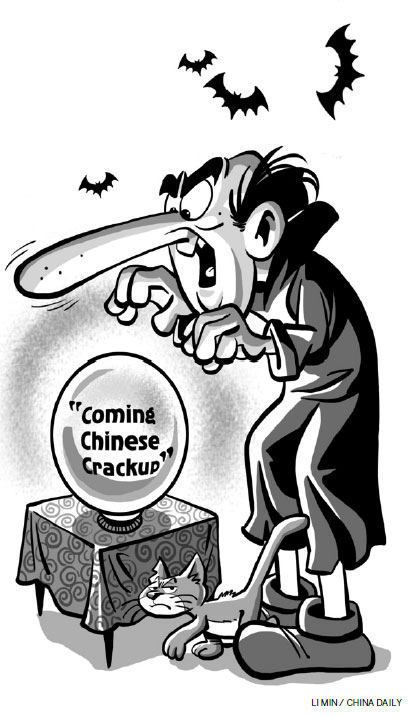Anti-graft efforts gain trust for leadership
By Ji Naili (Chinadaily.com.cn) Updated: 2015-03-16 11:09
US scholars – not all, but surely a majority – tend to look at China from their own perspective: Why don't they have "one person, one vote"? Why do their citizens have no guns? Why do not the entrepreneurs unite and ask their government for more power?
They do not necessarily think in a hegemonic way, but they choose to ignore the differences between China and the United States.
A recent article by David Shambaugh, a professor of political science and international affairs at the George Washington University in Washington DC, published by The Wall Street Journal that predicts the "collapse" of the ruling Communist Party of China, is a typical example of this myopia.
According to Shambaugh, the ongoing campaign against corruption will lead to struggles among different political forces of China, thus threatening political stability. He also "observed" that the call of the leadership does not appeal to ordinary people.
But Shambaugh has made a fatal error. Corruption is the cancer in China's political system that needs to be cut out. He mistakes temporary pain as long-term suffering.
In fact, the temporary pain is for China to regain its health in the long run.
Some of his judgments are reasonable, such as the root of corruption lies in inefficient and ineffective supervision over power, and secret deals between power and money.
However, he groundlessly accuses the Communist Party of China of breeding corruption, when the truth is the anti-corruption campaign's success would not be possible without the Party.
It is the central leadership and the Party's discipline watchdog that have brought down some powerful corrupt officials.
Besides, the Party leadership is rendering efforts towards strengthening supervision over power, advancing the rule of law, and propelling officials to declare their property ownership, all of which are necessary to eliminate corruption.
It is absurd to assert these efforts, which succeeded in the West, will fail in China. Without the Party's leadership, these efforts would not be possible.
Shambaugh fails to recognize that corruption can ruin people's trust in the ruling party and the government.

I’ve lived in China for quite a considerable time including my graduate school years, travelled and worked in a few cities and still choose my destination taking into consideration the density of smog or PM2.5 particulate matter in the region.











